'Low property taxes, friendly neighbours': How some Manitoba communities are selling small-town living
Amid a struggle to attract new growth to rural Manitoba, some communities are finding creative ways to sell Manitobans on small-town living.
When Hal Lavery got a job in Vita, Manitoba about a decade ago, he had never heard of the southern community of just 500 people before.
His first experience was a real rural welcome – driving into town and being welcomed by a cow and two sheep running down the road.
"Which was a unique experience for me, because growing up in the city I wasn't used to drag racing livestock," he said.
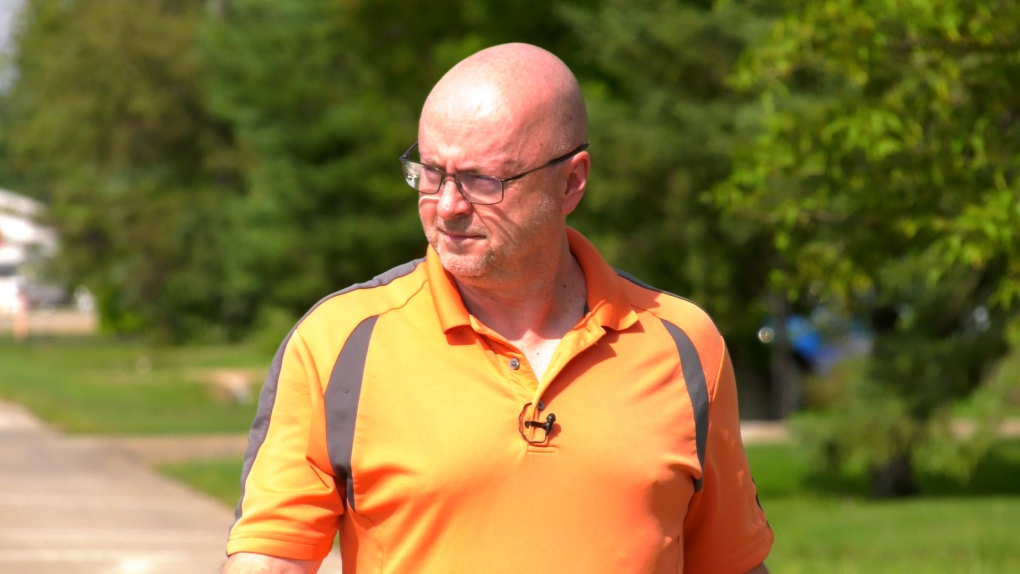 Hal Lavery is selling his home in Winnipeg and moving to Vita, Man. (Source: Danton Unger/CTV News Winnipeg)
Hal Lavery is selling his home in Winnipeg and moving to Vita, Man. (Source: Danton Unger/CTV News Winnipeg)
However, Vita's small-town charm quickly won Lavery over. Now working as the vice-principal at the community's school, Lavery is selling his house in Winnipeg and moving to Vita full-time.
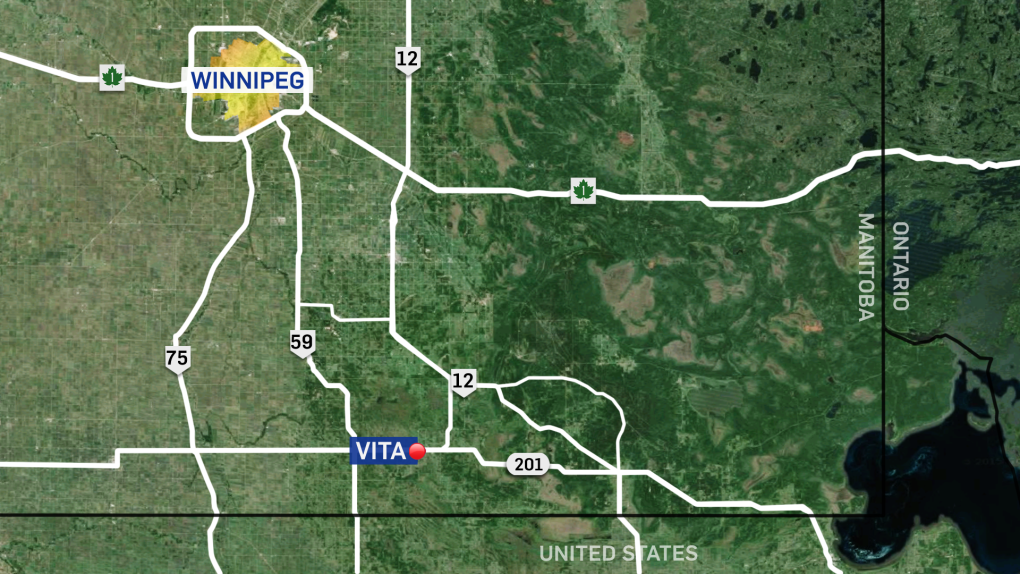 A map shows the location of Vita, Manitoba. (CTV News Winnipeg)
A map shows the location of Vita, Manitoba. (CTV News Winnipeg)
"The house that's 20 metres away from work, surrounded by a huge yard, low property taxes, friendly neighbours, versus quite the opposite in Winnipeg – yeah, I think I'll take this one," he said.
Those small-town benefits are what some communities are trying to leverage to boost their growth.
Growth stagnant among some municipalities: data
According to data and estimates from Statistics Canada, among Manitoba's 137 municipalities, more than half (86) have seen their population increase by less than 10 per cent or less over the past 10 years.
Of those, 39 have seen their population decrease or remain stagnant.
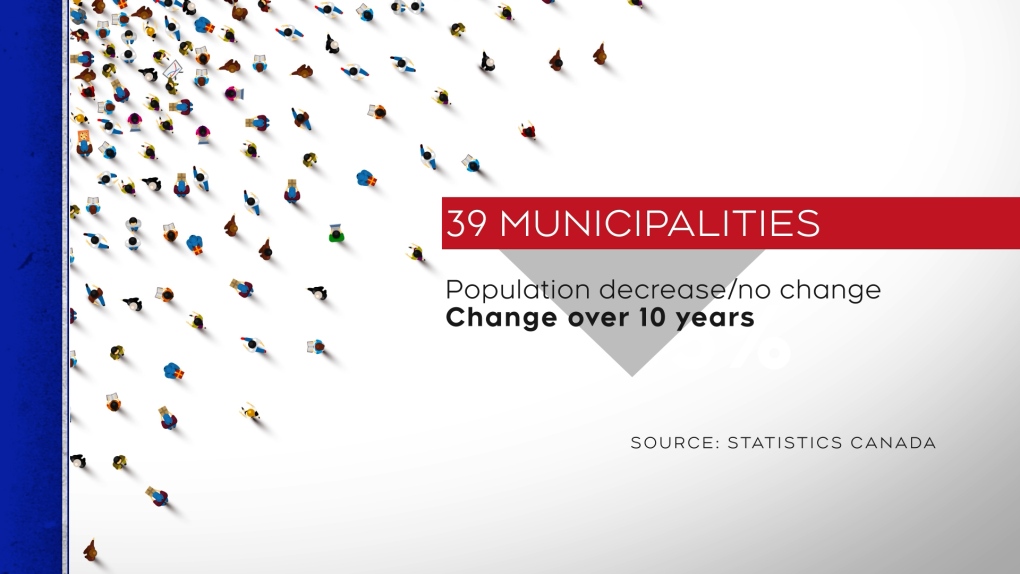
However, the Association of Manitoba Municipalities says population data isn't always a tell-tale sign of growth. Some of these small communities can have large economic potential.
"Municipalities understand that if they build housing, people will come and live in those communities. At the same time, they have to create positive business environments for the businesses to create those jobs," Denys Volkov told CTV News.
"We're seeing that it's easier often to build in more rural communities, that there is less opposition to economic development."
The 'snowball effect' in southwest Manitoba
It's a mentality that is leading to growth in Reston, Manitoba – a community of about 660 people in the southwest Rural Municipality of Pipestone.
"It's kind of a snowball effect if you can get a community moving in a progressive manner," said Archie McPherson, reeve for the area.
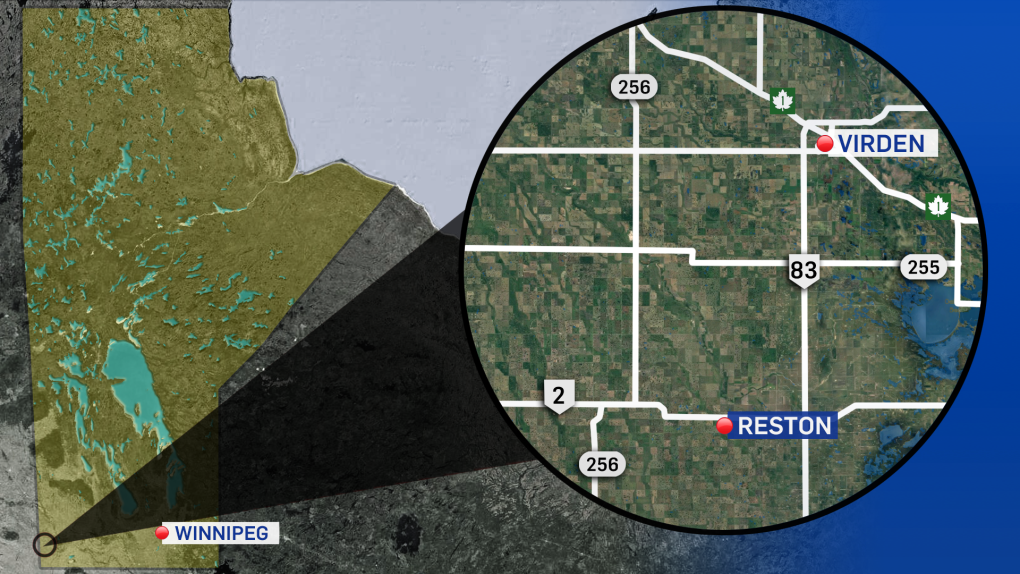 A map shows the location of Reston, Manitoba. (CTV News Winnipeg)
A map shows the location of Reston, Manitoba. (CTV News Winnipeg)
The municipality has launched several initiatives in the past decade or so to make a move to Reston more attractive.
It is selling housing lots for just $10 as long as you build a home within a year, leading to the addition of 20 to 30 homes in the area.
"It doesn't sound like a lot, but for a small community, that's significant," McPherson said.
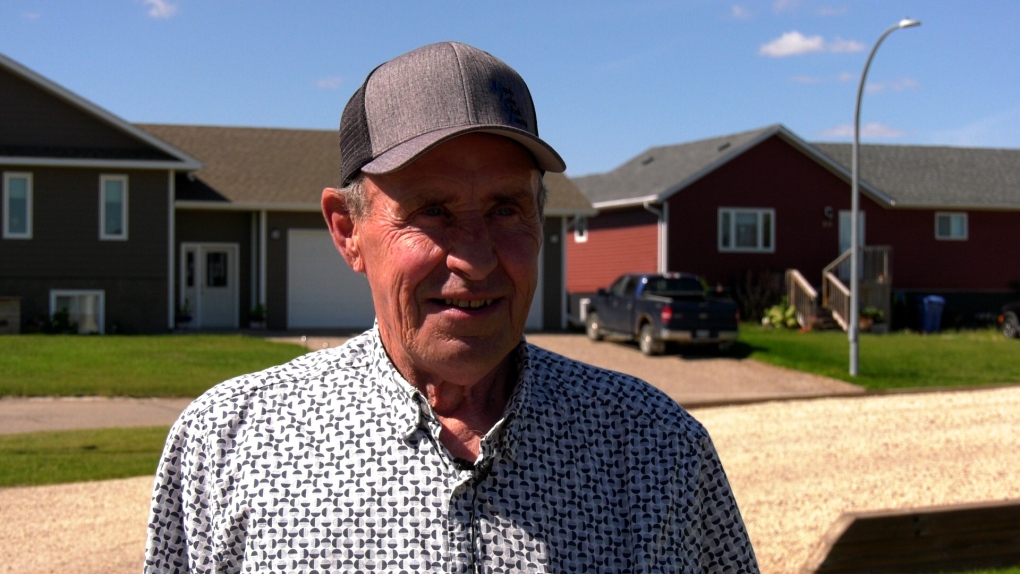 Archie McPherson, Reeve for the RM of Pipestone, is pictured in August 2024. (Source: Danton Unger/CTV News Winnipeg)
Archie McPherson, Reeve for the RM of Pipestone, is pictured in August 2024. (Source: Danton Unger/CTV News Winnipeg)
For those who would rather buy than build, the municipality offers grants of up to $6,000 for people moving into the community. On the economic front, it offers grants of up to $32,000 for new businesses coming to town.
"Once the community starts to grow and more businesses come into town. Then all of a sudden you get another convenience store, Tim Hortons, an A&W, et cetera and that creates more employment," he said. "It's worked out fairly successfully."
Over in Vita, Lavery is settling into small-town living and doesn't plan on going back to the big city any time soon.
"You're more of a community out here, you're more connected. And I think that is kind of ringing true for a lot of people."
CTVNews.ca Top Stories

BREAKING Suspect in killing of UnitedHealthcare CEO will return to New York to face murder charges
The suspect in the killing of UnitedHealthcare's CEO will return to New York to face murder charges after agreeing to be extradited Thursday during a court appearance in Pennsylvania where he was arrested last week after five days on the run.
Potential scenarios for Prime Minister Justin Trudeau and the Liberals
The Liberal government was thrown into disarray this week when Chrystia Freeland stepped down from cabinet as finance minister, reviving calls for Prime Minister Justin Trudeau to step down or call an election.
Will the Amazon strike impact Canadian deliveries?
As Amazon workers at several U.S. facilities begin a strike, Canadian shoppers are likely wondering how the job action will impact their deliveries.
Google Maps image provides clue in Spanish missing persons case
Chance images captured by a passing Google Maps camera showing a man leaning over a large bag or bags in a car trunk with what could be a human body gave police an extra clue in a murder investigation in the central Spanish village of Tajueco.
Gisèle Pelicot speaks after ex-husband found guilty of rapes, sentenced to 20 years in France
Gisele Pelicot spoke of her 'very difficult ordeal' after 51 men were all found guilty Thursday in the drugging-and-rape trial that turned her into a feminist hero, expressing support for other victims of sexual violence whose cases don't get such attention and 'whose stories remain untold.'
'This shouldn't happen': Calgary family seeks changes after WestJet accessibility incident
A Calgary woman wants WestJet to apologize to her daughter and to improve staff training on accessibility after an incident during their latest trip.
Mystery drone sightings continue in New Jersey and across the U.S. Here's what we know
A large number of mysterious drones have been reported flying over New Jersey and across the eastern U.S., sparking speculation and concern over where they came from and why.
What's the best treatment for ADHD? Large new study offers clues
Stimulant medications and certain therapies are more effective in treating ADHD symptoms than placebos, a new study on more than 14,000 adults has found.
'We'll never be the 51st state,' Premier Ford says following Trump's latest jab
Ontario Premier Doug Ford says Canada will 'never be the 51st state,' rebuking U.S. President-elect Donald Trump’s latest social media post.

































